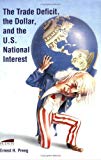Bond Market Outlook Less Positive with Democratic Victory
The Democratic Party and its supporters have indicated a willingness to enact legislation that will reduce demand for bonds, while increasing supply: a recipe for lower bond prices and higher yields.
There are few signs that the weakened Republican Party, now in the minority, will put up effective resistance.
Here are some signs, portents, and expectations:
Increased Minimum Wage: No matter how you cut it, increasing minimum wages is inflationary and Federal Reserve Chairman Bernanke seems to be genetically programmed to increase short term interest rates at any sign of inflation. This would put negative pressure on short-term bond prices.
Protectionist Trade Measures: Labor unions may seek payback for supporting the Democratic Party with protectionist legislation that will tend to cut back imports. This could decrease the supply of foreign dollars that support the bond market. Decreasing the supply of less expensive foreign goods also contributes to inflation — another signal to Chairman Bernanke to raise short-term interest rates.
Support for Fannie Mae: With Democrats in control, Fannie Mae should be out of regulatory limbo, able to increase issues of mortgage-backed bonds, now competing with asset-backed securities from commercial banks that moved to take over the market while Fannie Mae was repairing its balance sheet.
Support for Stock Buybacks: Democratics have long-favored reducing corporate income taxes, since large companies are their favorite tax collectors. Democrats have avid supporters on Wall Street, including corporate executives, speculators like George Soros, fund managers, and investment banks, all of whom stand to benefit from stock buybacks. Reducing corporate income tax gives executives money to spend on buybacks to jack up the value of their options, as seen with the Jobs Creation Act. Recent increases in stock buybacks have been financed by bond issues, putting pressure on long term debt markets.
Support for Defined Benefit Pension Plans of Unionized Civil Servants: The real payoff for trade unions will come in increased benefits for unionized civil servants, which means higher costs for states and municipalities, higher local taxes, and new bond issues. See: “Municipal Bonds and the Democratic Takeover of Congress“.
The Trade Deficit Still Rules
The key to the bond market, of course, is the trade deficit.
It seems unlikely that the Democrats will reverse long-term policies that favor the trade deficit, at least not immediately, so this powerful source of demand for bonds should continue.
It’s too soon to expect retiring Baby Boomers to move into bonds, especially while the stock market is bolstered by buybacks. The Democratic Party supports tort lawyers (who have begun to show interest in class action suits involving buybacks), but this is unlikely to impact the buyback trend in the short term.
All in all, it would seem that the outlook for bonds is less positive with a Democratic Congress, but not to a degree that suggests an immediate change in long-established trends.


 Click these icons to email articles to friends.
Click these icons to email articles to friends.